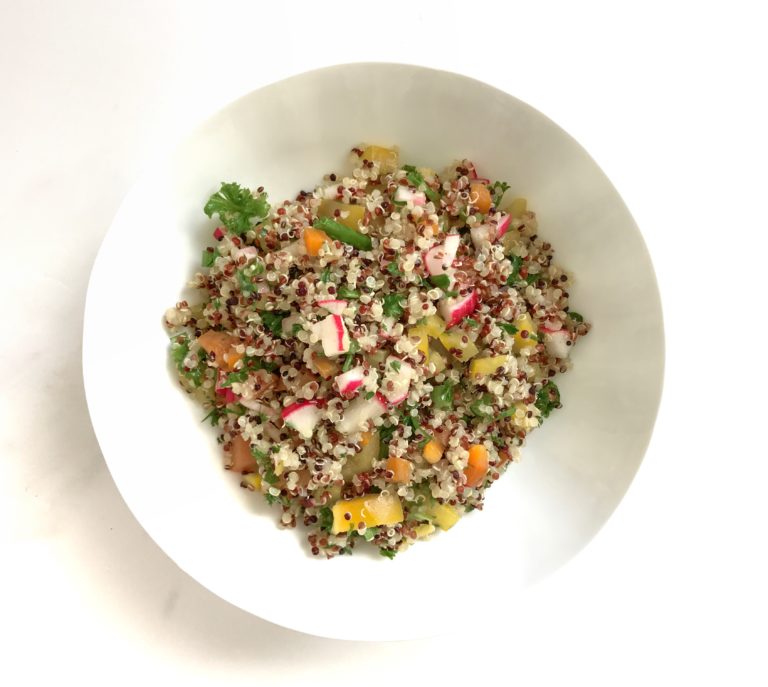Protein Powerhouse: A Guide to Better Understand Protein Powder

Protein powders have become a staple in the world of health and fitness, often touted as a convenient way to boost protein intake and support muscle growth. With shelves lined with various types and brands, choosing the right protein powder can be overwhelming. As a dietitian, it’s crucial to understand the different types of protein powders, their uses, and their potential benefits and drawbacks. In this guide, we’ll delve into the world of protein powders to help you make informed choices for your health and fitness goals.
Types of Protein Powders
Here are some examples of common types of protein powders you may find at your local health food store, online or at the grocery store.
1. Whey Protein:
- Derived from milk during the cheese-making process, whey protein is one of the most popular forms of protein powder.
- It’s rich in essential amino acids, particularly leucine, which plays a key role in muscle protein synthesis.
- Whey protein is rapidly absorbed by the body, making it an ideal choice for post-workout recovery.
2. Casein Protein:
- Like whey, casein is derived from milk but is absorbed more slowly by the body.
- It provides a sustained release of amino acids, making it suitable for consumption before bed to support overnight muscle repair and growth.
- Casein protein may also help promote feelings of fullness, making it a potential aid in weight management.
3. Soy Protein:
- Made from soybeans, soy protein is a complete protein source, containing all essential amino acids.
- It’s suitable for vegetarians and vegans and may offer additional health benefits, such as lowering cholesterol levels and reducing the risk of heart disease.
- Soy protein is also rich in compounds called phytoestrogens, which may have hormonal effects in the body.
4. Pea Protein:
- Pea protein is derived from yellow peas and is a high-quality plant-based protein source.
- It’s easily digestible and suitable for those with dairy or soy allergies.
- Pea protein is rich in branched-chain amino acids (BCAAs), which are important for muscle growth and repair.
5. Rice Protein:
- Made from brown rice, rice protein is another plant-based option for individuals with dietary restrictions.
- While not as high in protein content as some other options, rice protein is easily digestible and hypoallergenic.
- It’s often combined with other plant-based proteins to improve its amino acid profile.
Uses of Protein Powders
1. Muscle Building and Recovery:
- Protein powders are commonly used by athletes and fitness enthusiasts to support muscle growth and repair.
- Consuming protein shortly after exercise can help maximize muscle protein synthesis and accelerate recovery.
2. Weight Management:
- Protein is known for its satiating effects, helping to curb appetite and reduce calorie intake.
- Incorporating protein powder into meals or snacks can help individuals feel fuller for longer, potentially aiding in weight loss or weight maintenance efforts.
3. Convenience:
- Protein powders offer a convenient and portable source of protein, making them ideal for busy lifestyles.
- They can be easily added to smoothies, shakes, oatmeal, or baked goods to increase protein content without significantly altering the taste or texture of the food.
4. Dietary Restrictions:
- For individuals with dietary restrictions such as lactose intolerance or food allergies, protein powders provide alternative protein sources that are easy to digest and suitable for their needs.
Considerations When Choosing a Protein Powder
1. Protein Content:
- Look for protein powders with a high protein content per serving to maximize the benefits.
- Aim for at least 20 grams of protein per serving for optimal muscle-building effects.
2. Ingredients:
- Avoid protein powders with added sugars, artificial sweeteners, or unnecessary additives.
- Opt for products with minimal ingredients and natural flavourings whenever possible.
3. Personal Preferences:
- Consider your dietary preferences, such as whether you prefer animal-based or plant-based proteins.
- Experiment with different flavorus and brands to find a protein powder that suits your taste and lifestyle.
4. Budget:
- Protein powders vary in price, so consider your budget when choosing a product.
- Keep in mind that higher-priced products are not necessarily superior in quality, so compare labels and reviews to find the best value for your money.
Protein powders can be a convenient and effective way to increase protein intake and support various health and fitness goals. With a wide range of options available, including whey, casein, soy, pea, and rice protein, there’s something to suit everyone’s needs and preferences. By understanding the different types of protein powders, their uses, and how to choose the right one, you can harness the power of protein to optimize your health and performance. As always, consult with a healthcare professional or registered dietitian before making any significant changes to your diet or supplementation regimen.








